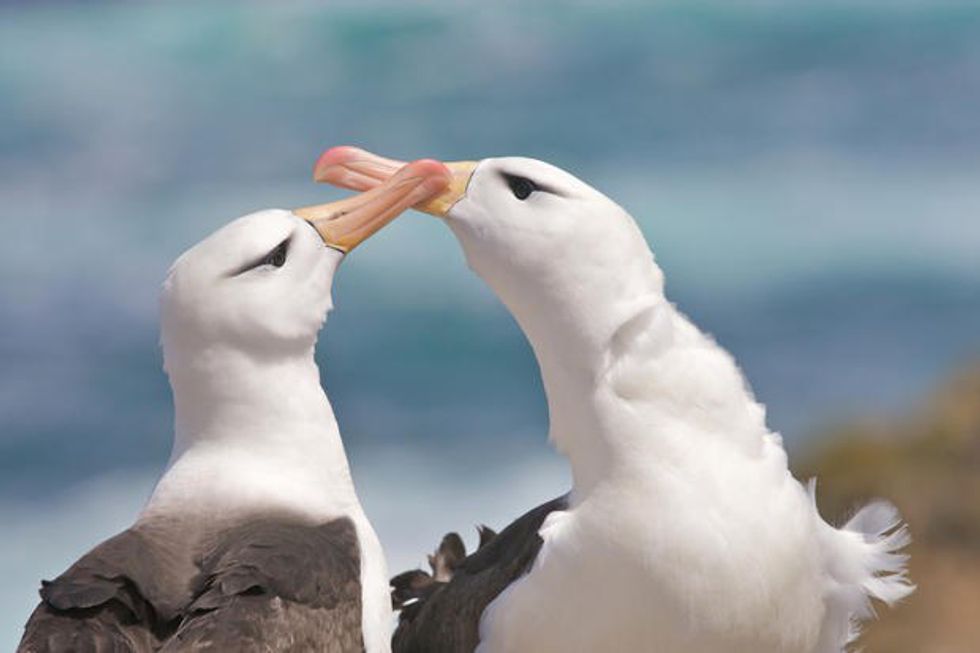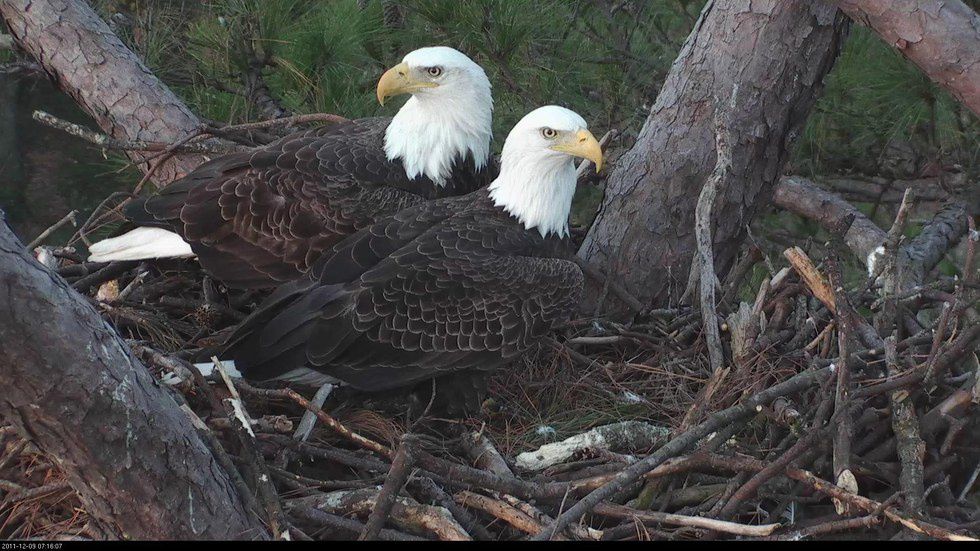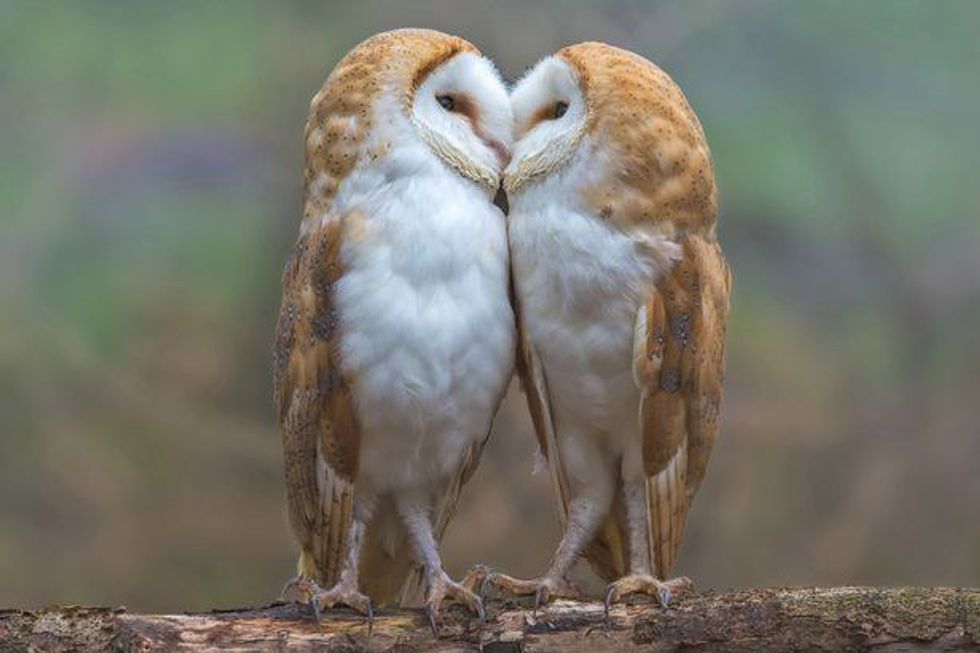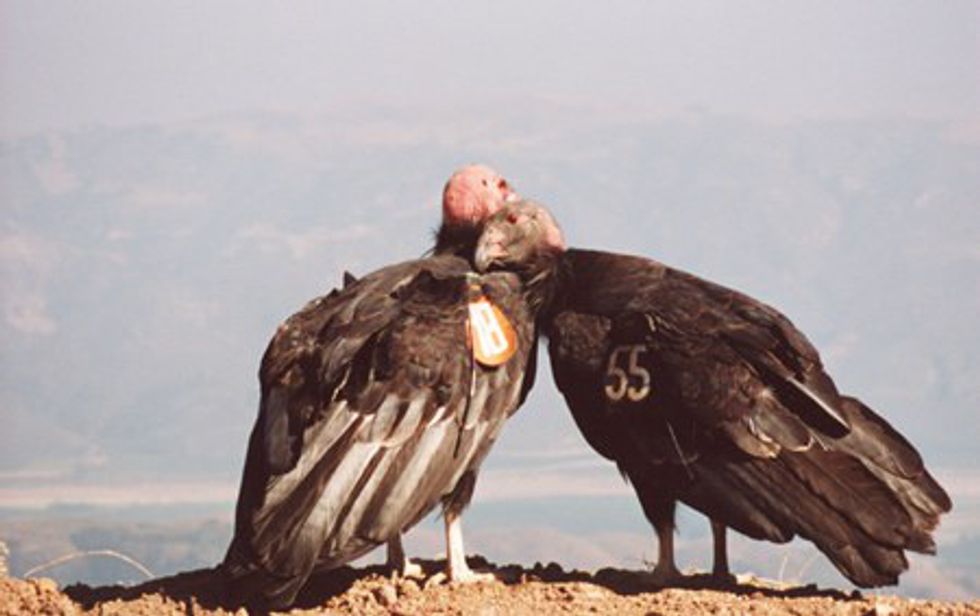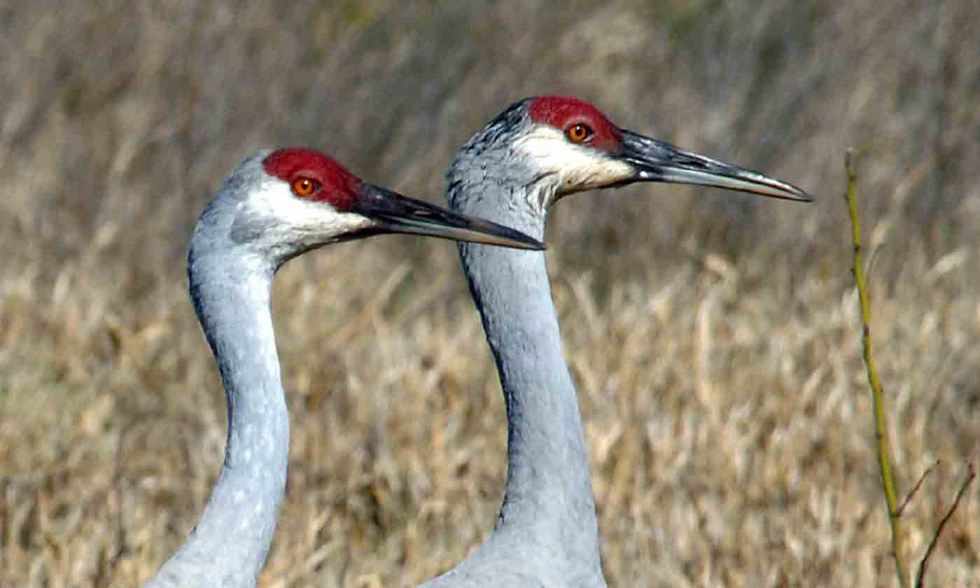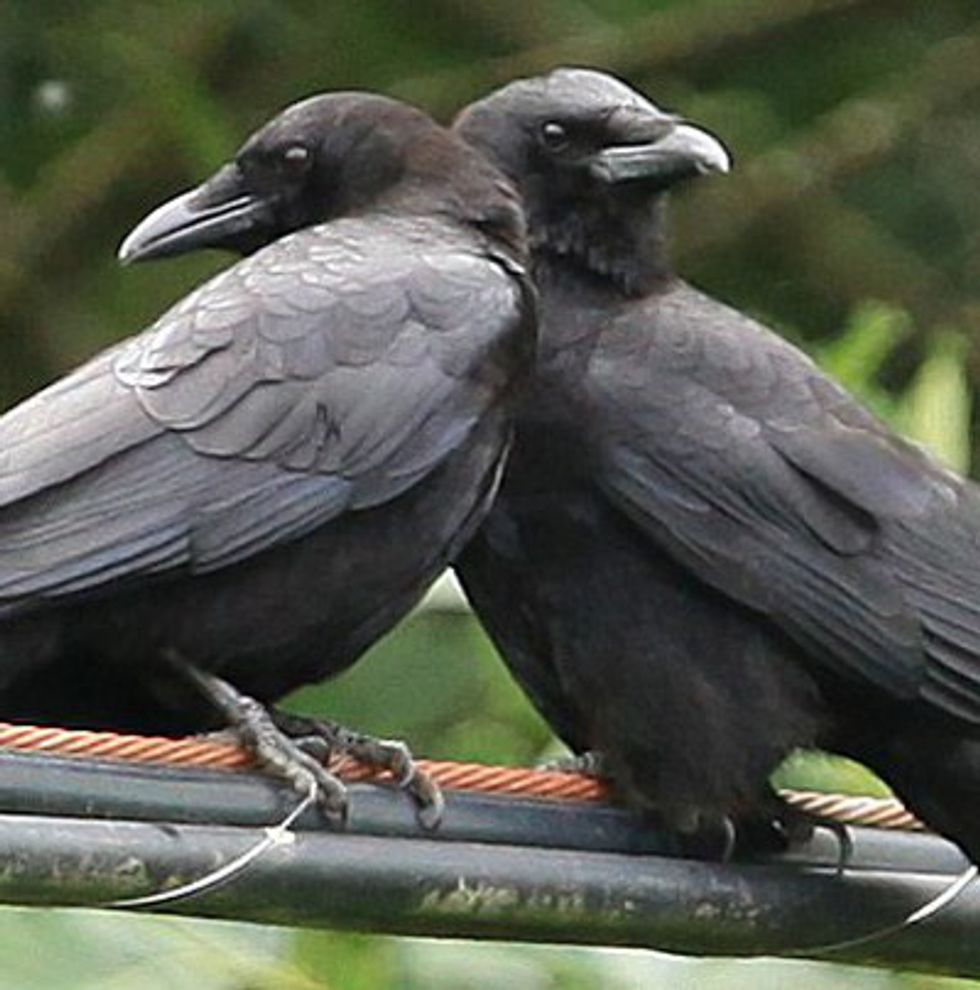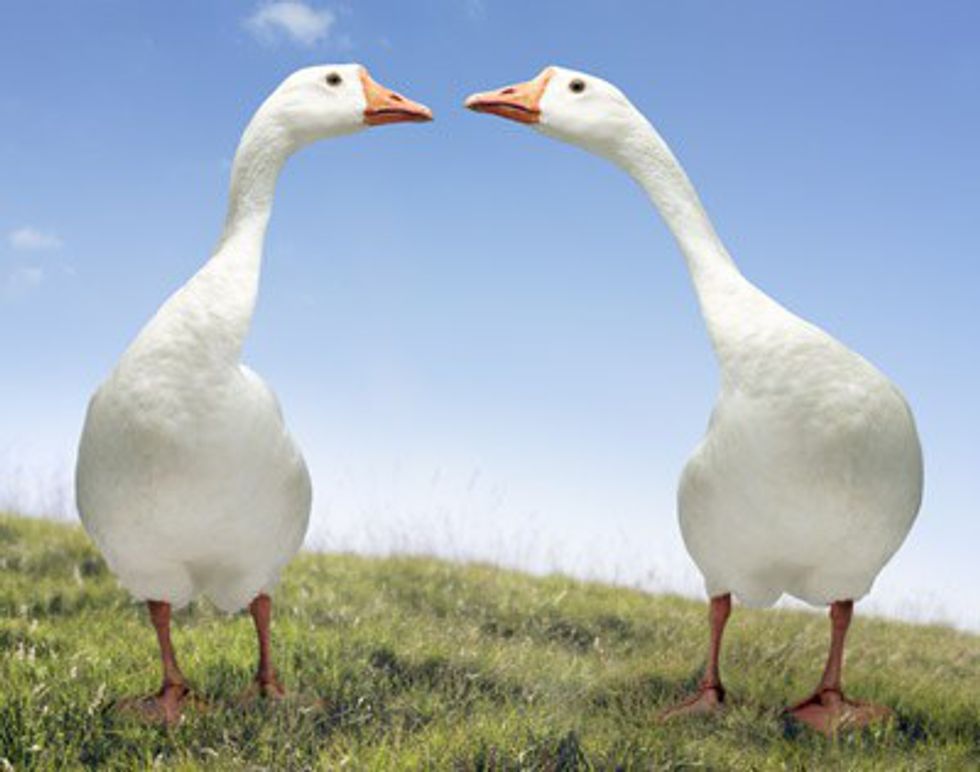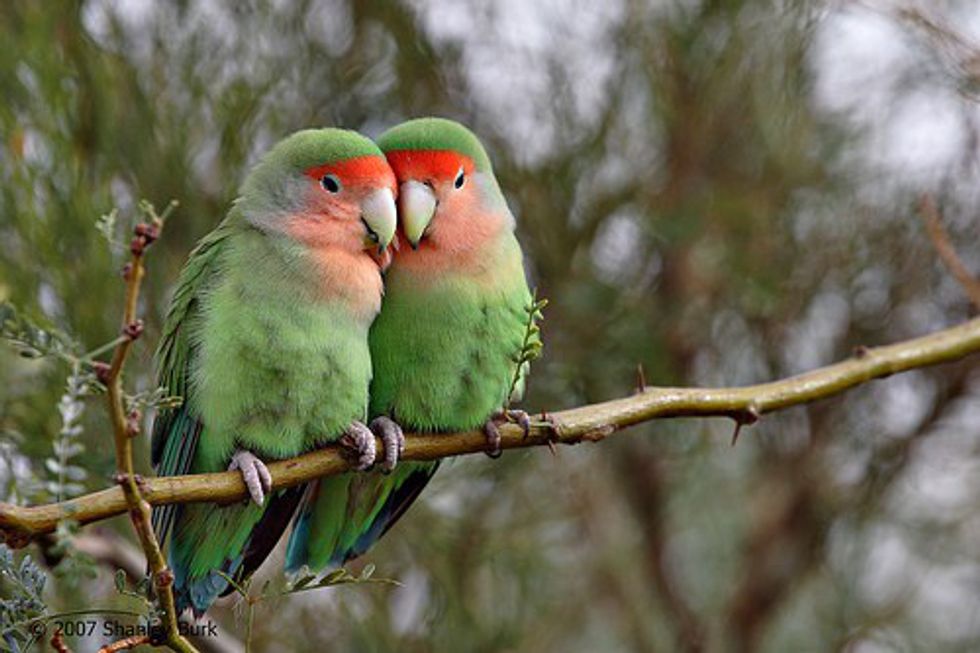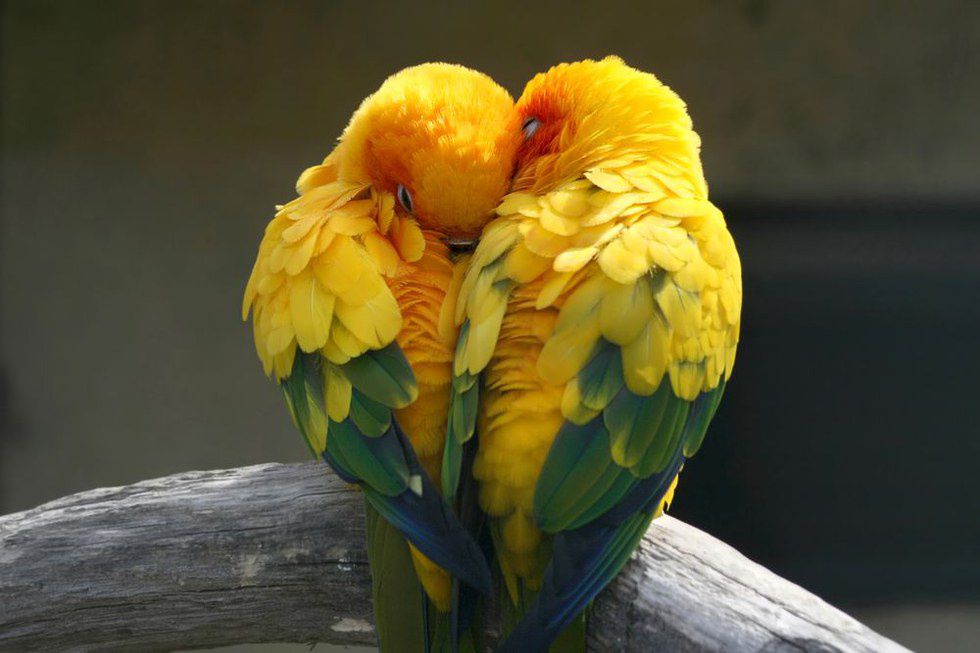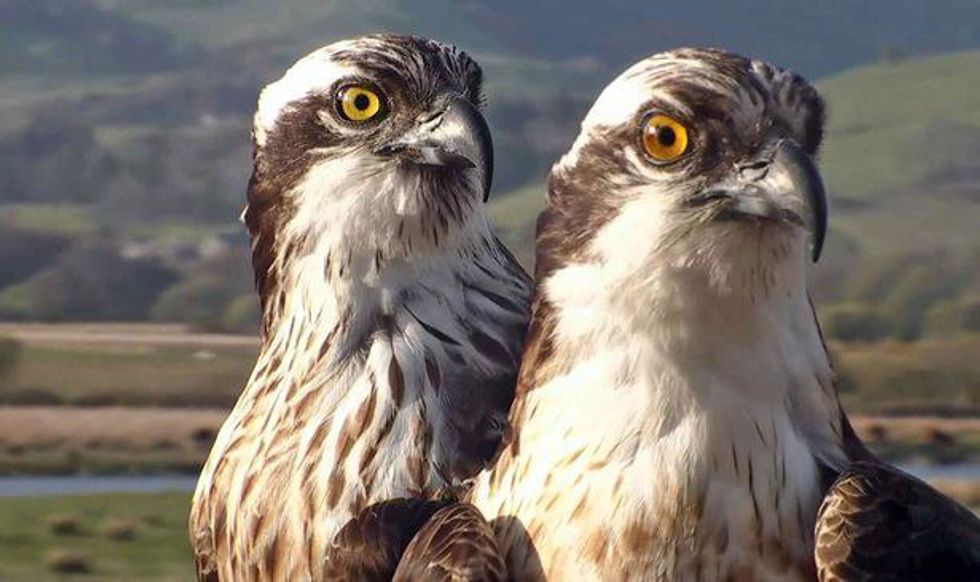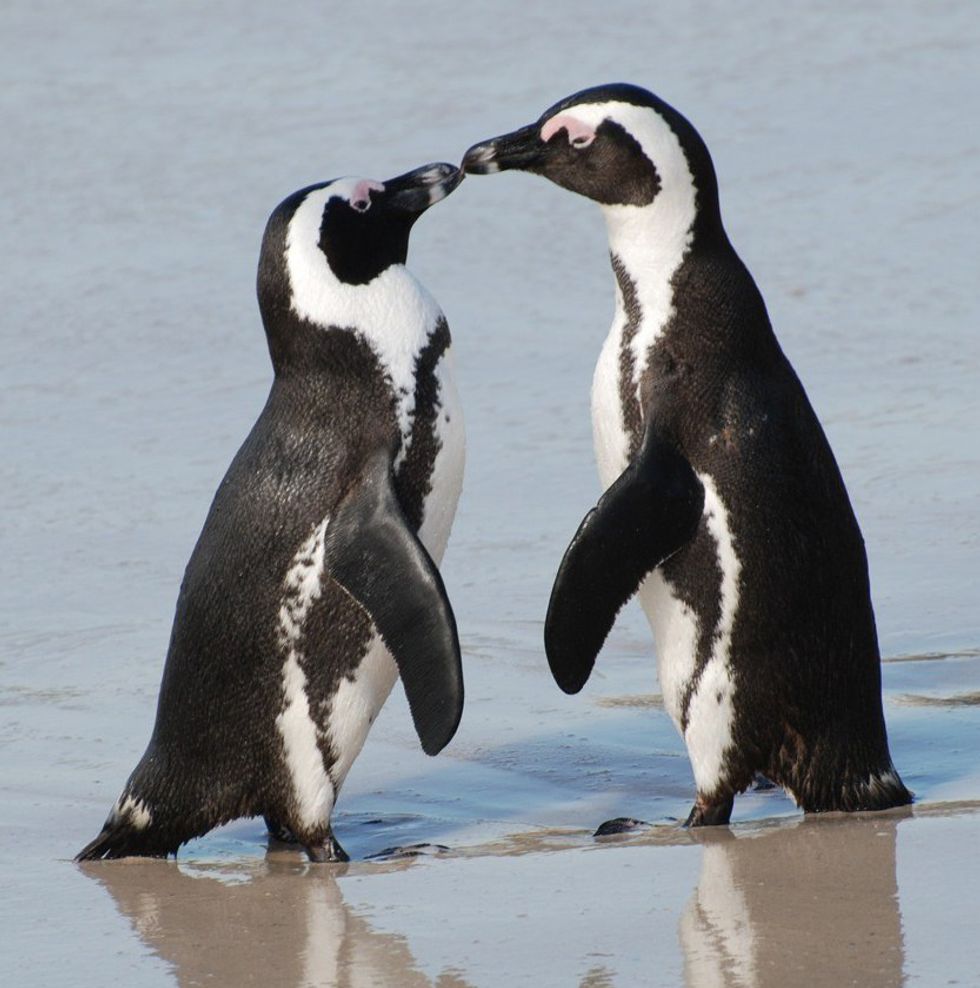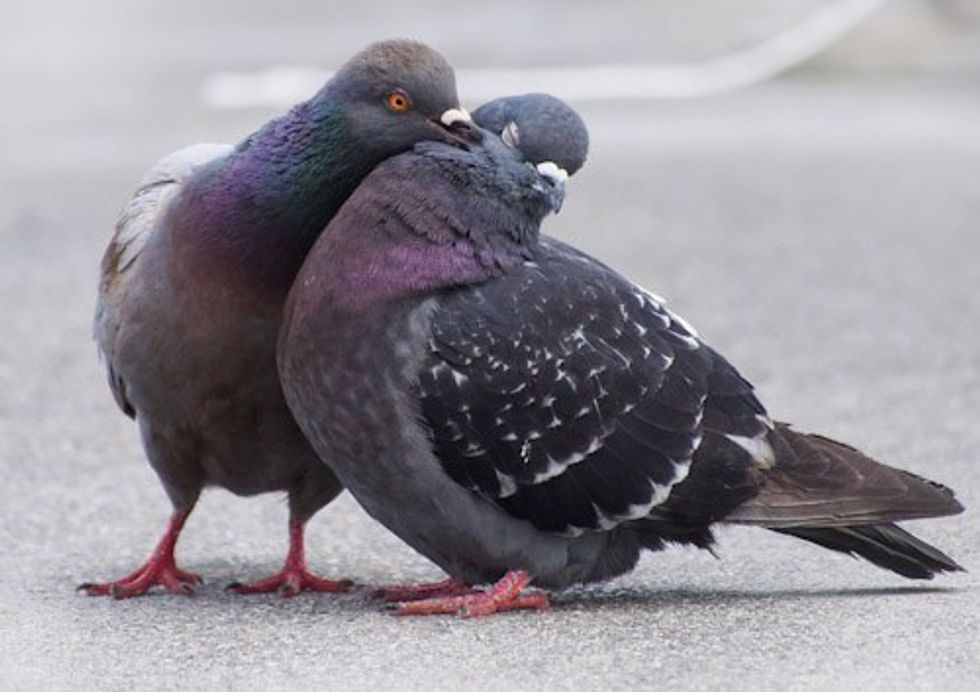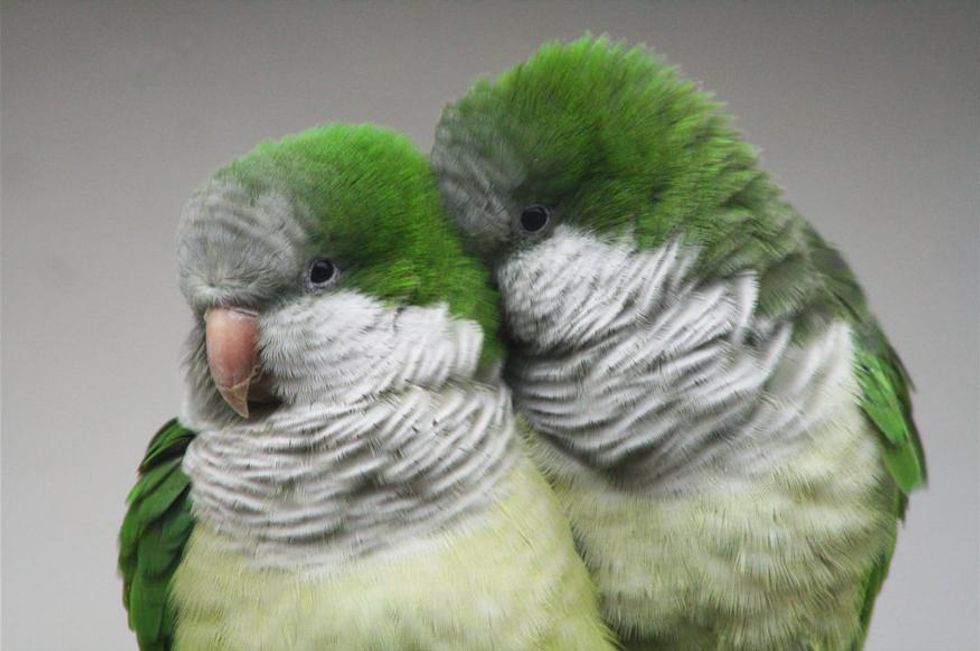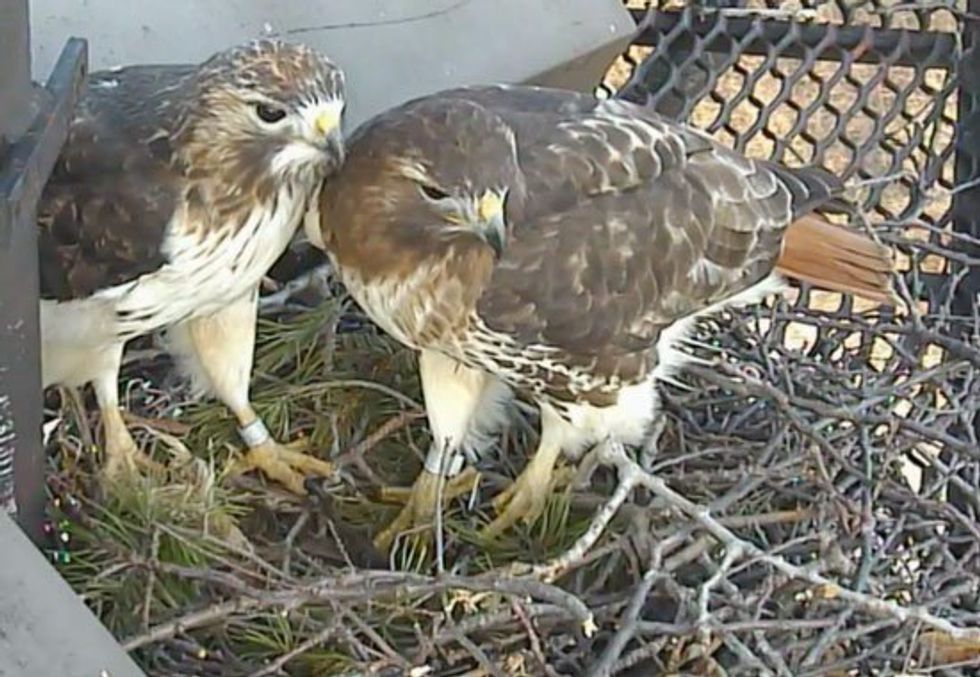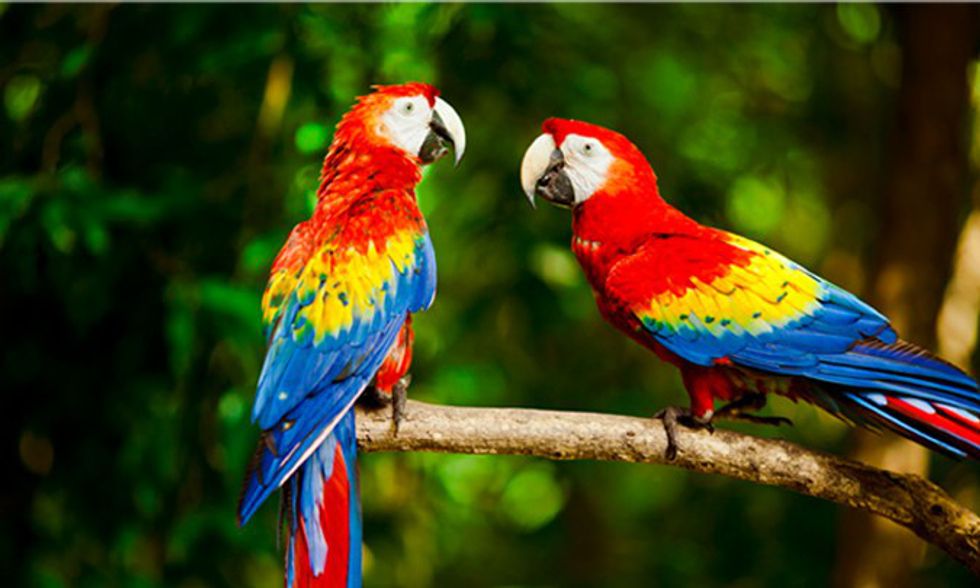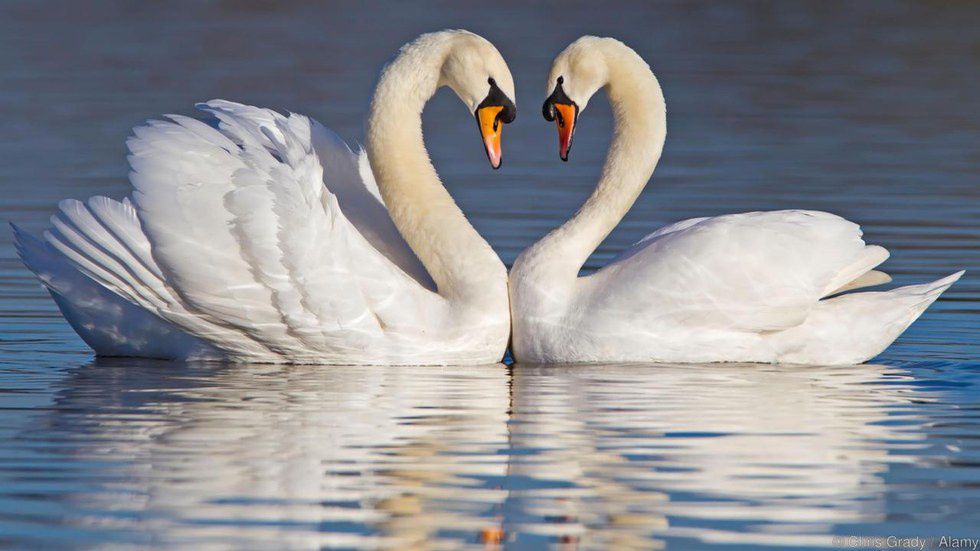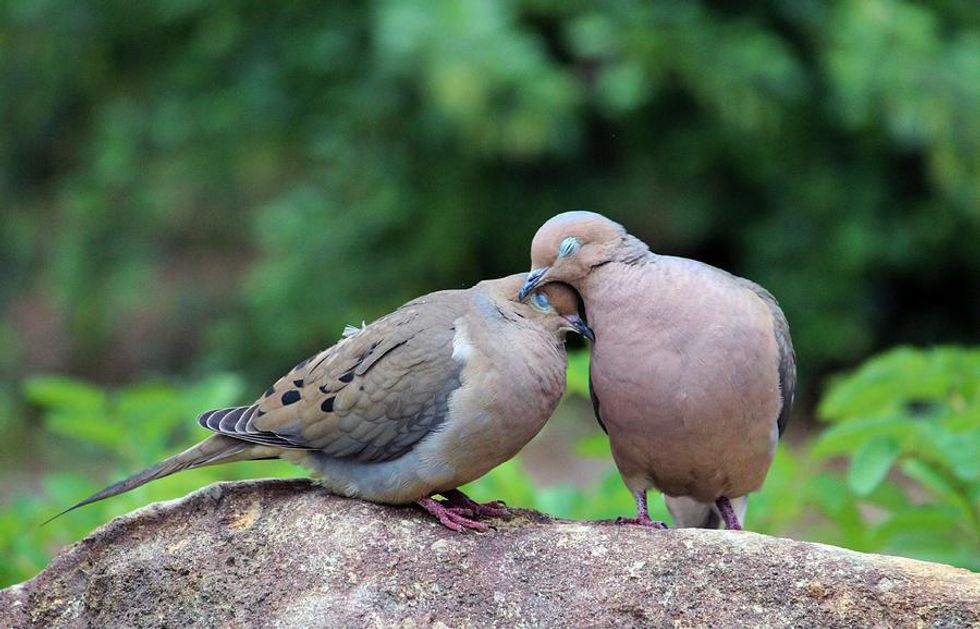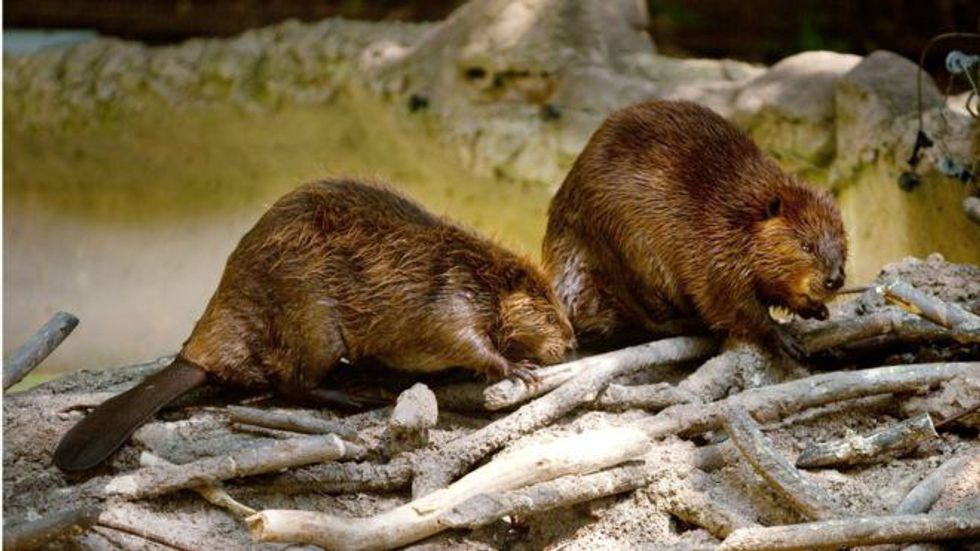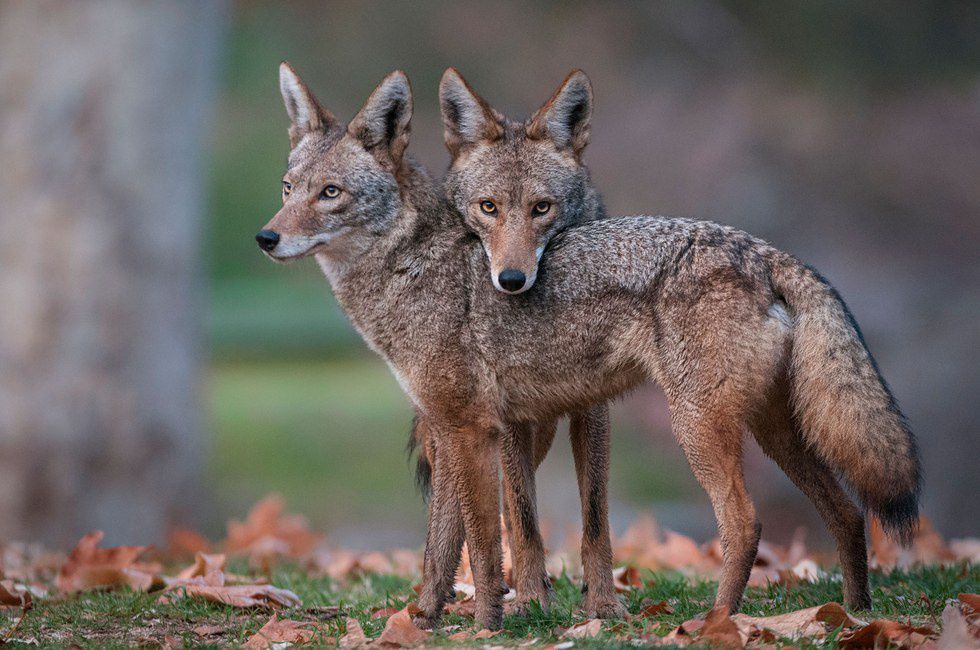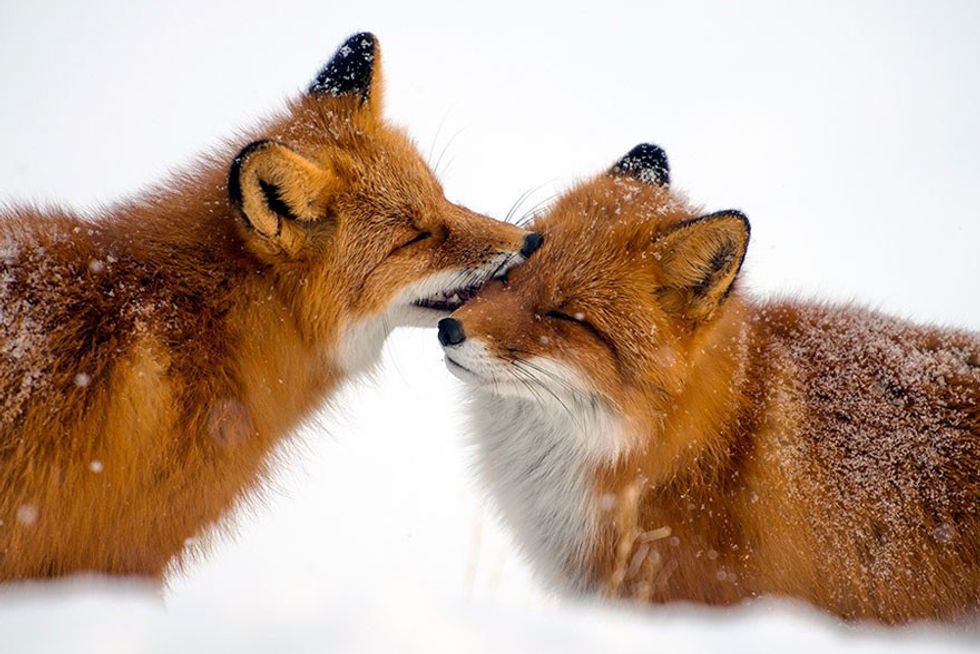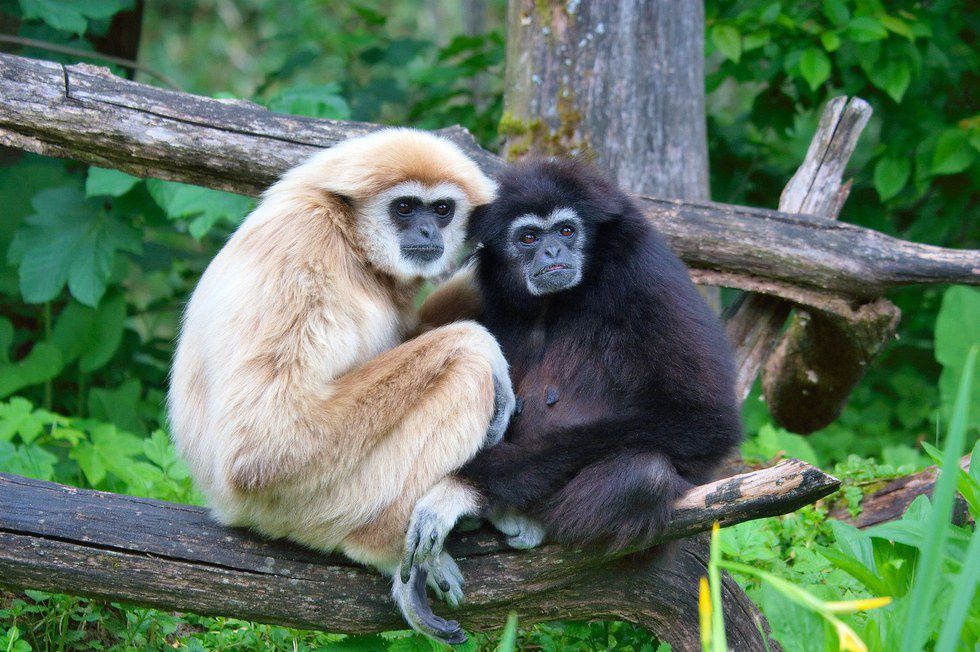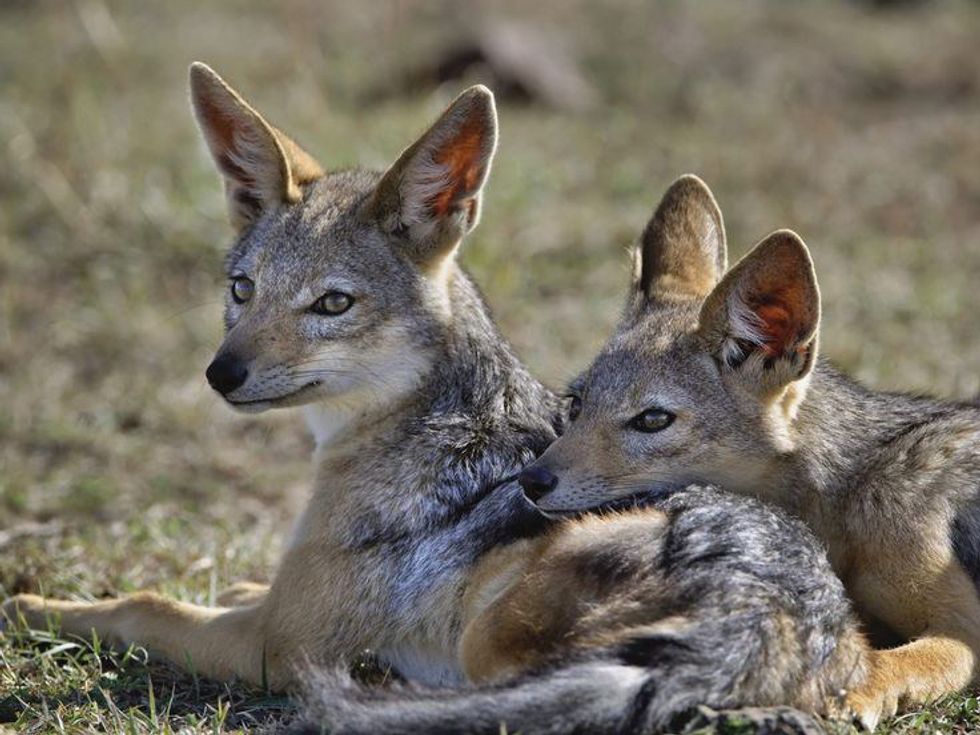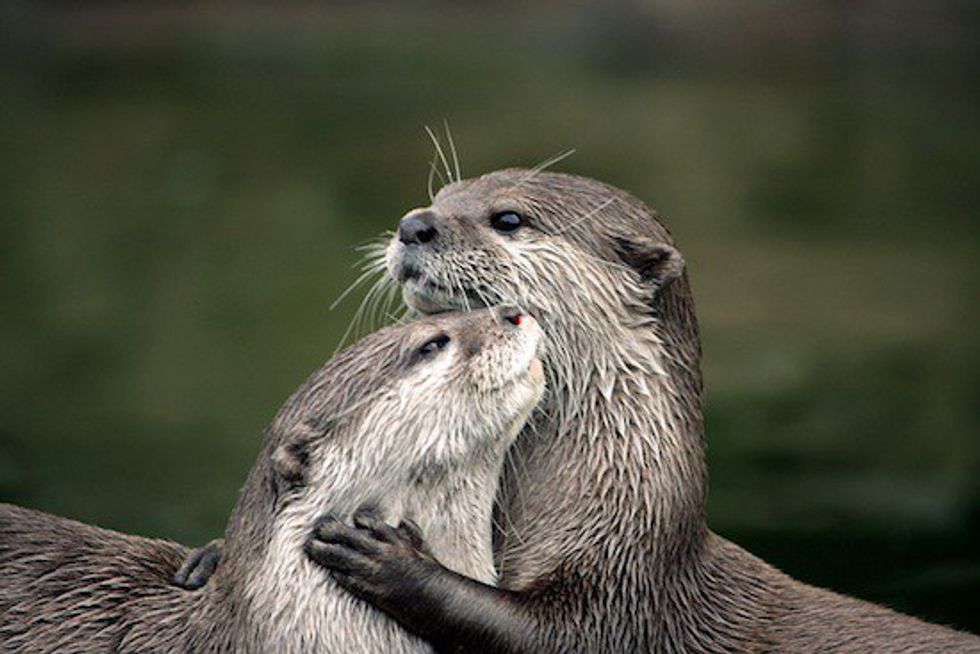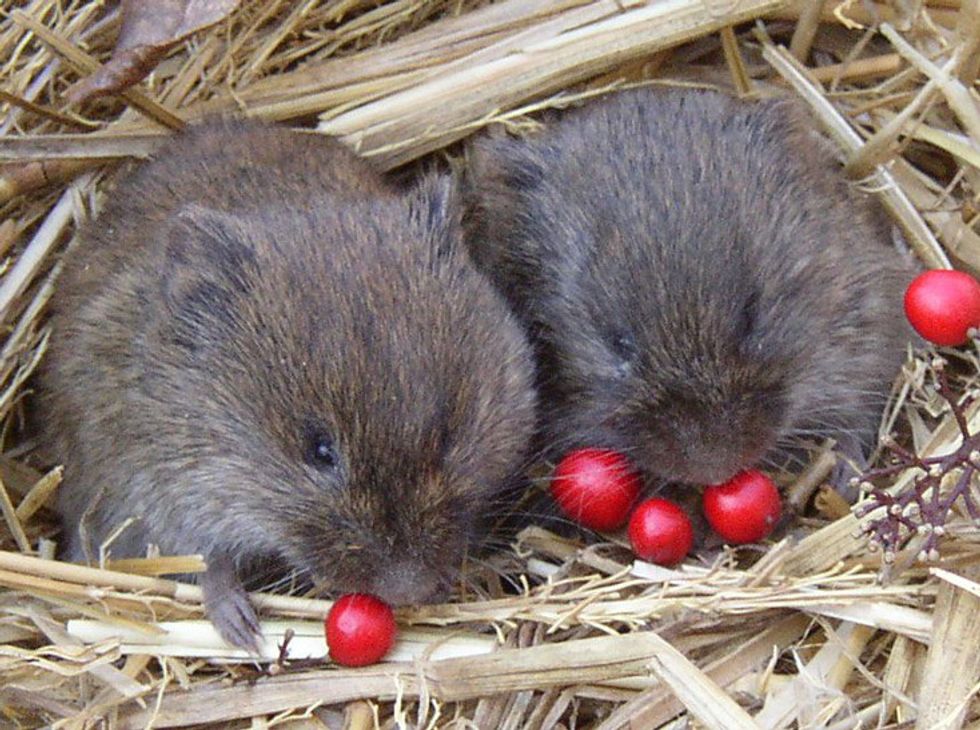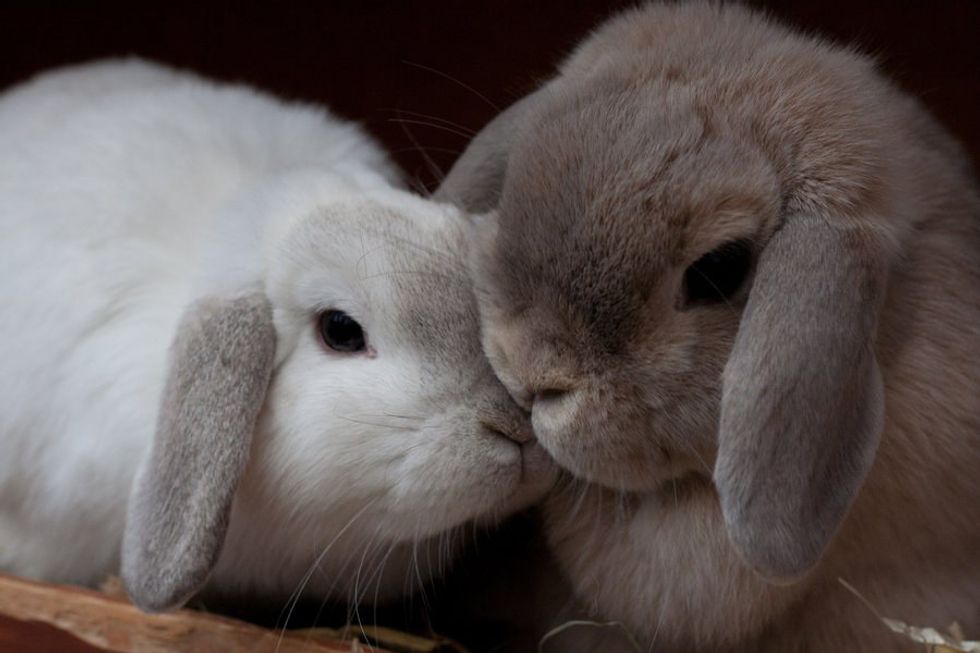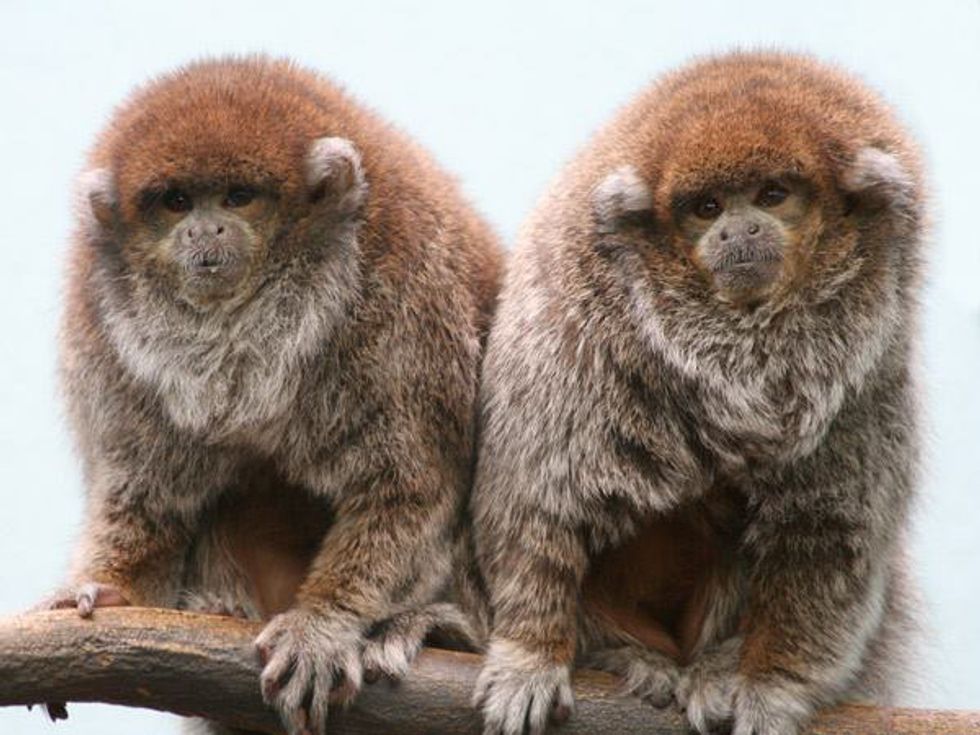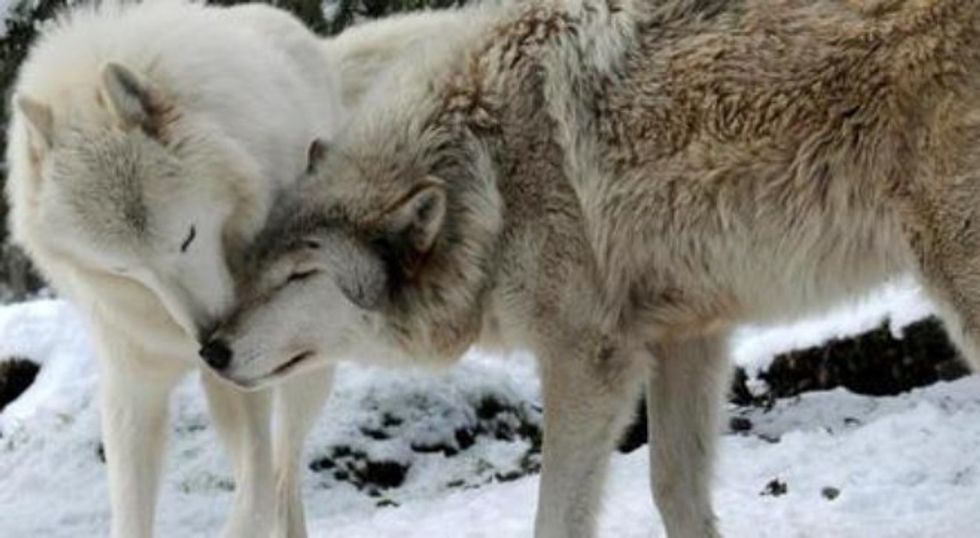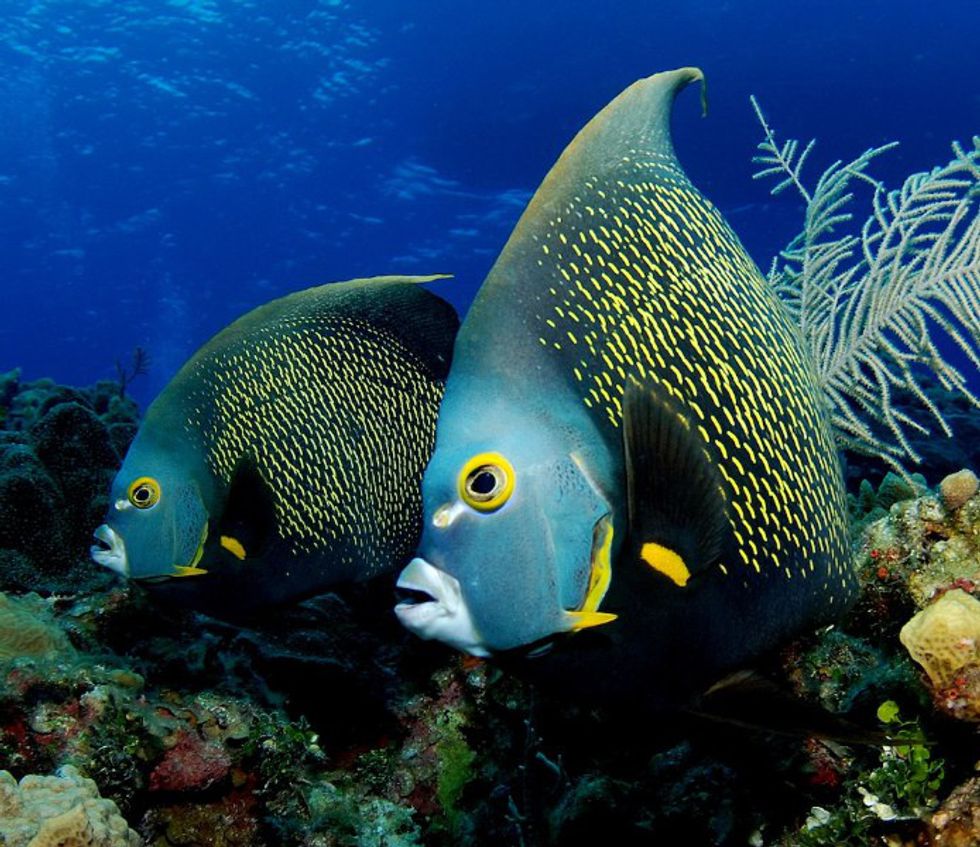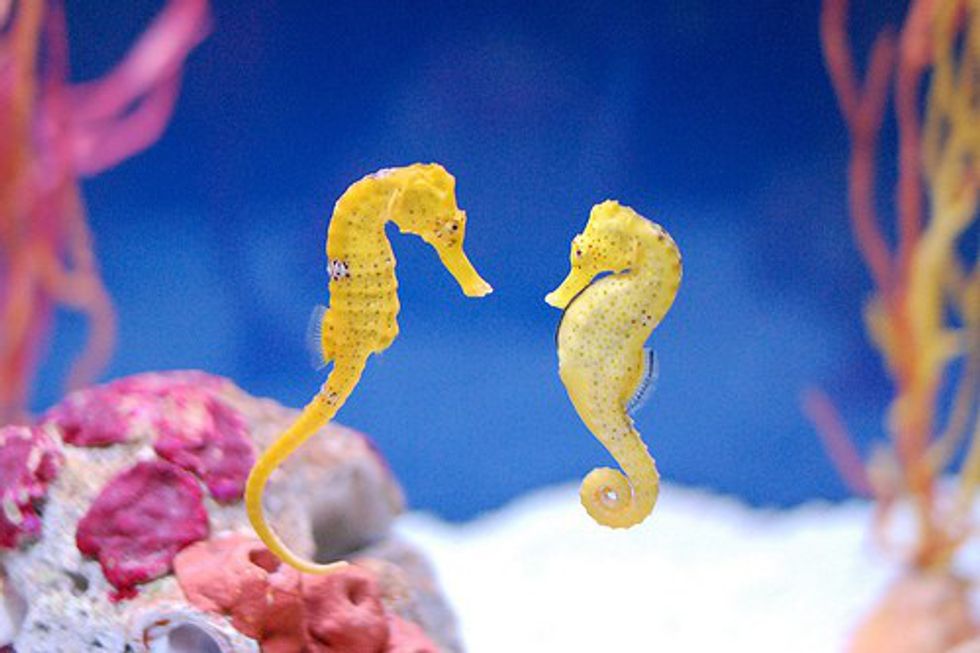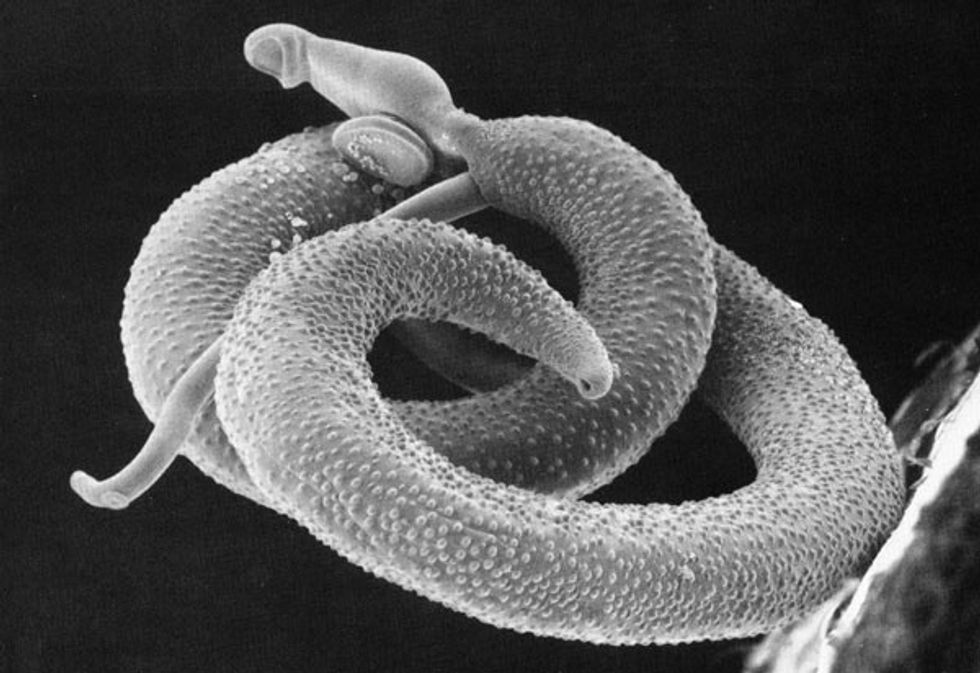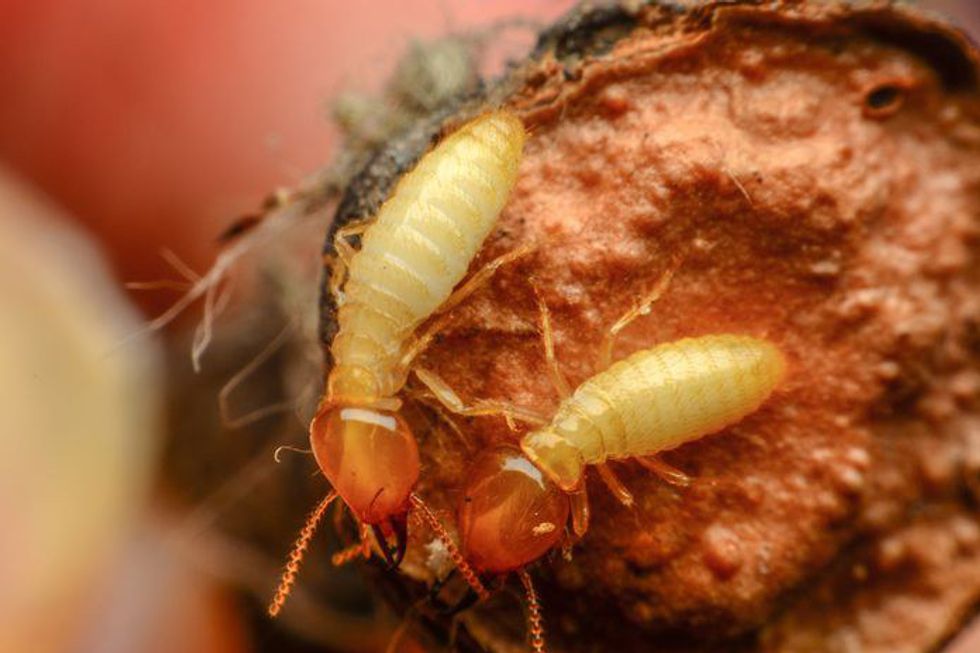Ah Valentine's Day! It's not only meant for human beings to celebrate, It's also meant for the members of the animal kingdom! Yes It's true, love is thriving even in the animal kingdom and most of them only stay with one devoted partner, Which is referred to mating of life.
Mating for life doesn't necessarily mean monogamy. Sometimes animals have complex relationships just like people do They even become aggressively and possessively jealous and resort to fighting off the competition! Their eyes will tend to wander and even have secret affairs and yet they always return to their primary mate.
Are you curious to find out which animals mate for life? Well I'll be gladly to show you.
💕Birds💕
It's funny to report that 90% of birds mate for life, And they even stay with their partners until death parts them. While there's only a small percent of mammals that mate for life. Here's a couple of examples:
Albatross: These big birds fly at great distances to fly across the ocean just to breed with it's chosen mate. The pair bonds between males and females form over several years and will last for a lifetime, cemented through the use of goofy but affectionate ritual dances. In fact, the birds will court each other for years using those dances in order to pick the perfect partner.
Bald Eagle: Yes, The majestic symbol of The United States mate for life. These birds typically stay with each other until death separates them. Unfortunately these beautiful birds are on the verge of extinction. But there is hope! Recently there has been a discovery of a new eaglet hatching you can see the development of this cutie right here.
Barn Owls: Barn Owls are my favorite type of owl and to my surprise they mate for life! These birds are mostly live a life of solitude but when these owls become to the adult age will mate and they will become emotionally attached to their partner. Barn Owls can be seen cuddling each other within their nest in their naturally habitat. Isn't that adorable? But when one owl dies, the other will go into a deep depression before willing itself to die.
Black Vultures: Black Vultures are not really the prettiest birds to look at but these birds really don't care about appearance, These birds are very faithful to one another. They have been known to attack other vultures that have been caught philandering! A study published in the journal Behavioral Ecology found that "mated pairs exhibit long-term pair bonding and year-round association, and share incubation and nestling feeding duties equally." Couples that parent together stay together.
Condors: Condors are another type of bird that aren't much of a looker but that won't stop them from finding the perfect mate! During courtship, aerial displays bring the pairs to several nest options—kind of like searching for a potential home. The female, of course, has the final say in where the birds settle down. You could say that their love really soars into such great heights. These birds can live up to fifty to eighty years, I guess you could consider these birds like a cute elderly couple. But unfortunately these birds on the endangered list
Cranes: Cranes are very beautiful birds! When they form a pair bond it can last for years until one of the cranes dies. After a mate passes away, the surviving crane will seek out a new mate. Cranes display a beautiful mating dance that consists of wing flapping, bowing, jumps and simply playing around. They might also throw a stick or some plants into the air. It's quite a sight! After the dance has been completed pair performs unison calling to create a bond. When the pair reaches the northern breeding grounds, they mate and build a nest.
Crows: These clever and ominous birds mate for life, which is very hard to believe. Unless a mate is killed or severely incapacitated, crows appear to stay with the same mate year after year. It is possible, however, for exceptions to occur. Generally this would happen in the case of a young pair of birds that mated but bred unsuccessfully. They might break the pair bond and try again with someone else.
Geese: Geese are very loyal and are very protective of their partners and offspring. If a goose’s mate or chicks become sick or injured, he or she will often refuse to leave their side, even if winter is approaching and the other geese in the group are flying south. When a goose’s mate is killed, he or she will mourn in seclusion. After a partner dies, some geese spend the rest of their lives as widows or widowers, refusing to mate again. I guess that's the reason why a mother goose is used for nursery rhymes, Because they are a wonder parent and a wonderful significant other.
Gold Eagle: Golden Eagles are yet another endangered bird, which is unfortunate because these territorial birds nest in high places including cliffs, trees, or human structures such as telephone poles. They build huge nests to which they may return for several breeding years. Which is a dead give away for anyone to find them when they are in their monogamous for that period . Golden Eagles also have a beautiful sky dancing ritual for mating.
Love Birds: Lovebirds are small parrots, belonging to the taxonomic genus Agapornis. Nine lovebird species exist, but only three are commonly kept as pets. All of these species form strong, monogamous pair bonds and generally mate for life. However, pairs of any type of lovebirds will occasionally break up if they discover that they're incompatible with one another. Each of the different lovebirds have their own ways of finding their mate, but some similarities exist between species. Mating rituals can start young; for instance, rosy-faced lovebirds start pair bonding as young as 2 months old. In all species, Mating rituals often involve the males offering food to the females, in addition to displays of head-bobbing and twittering calls.
Old Faithfuls: People like to think of themselves as a faithful species, but when it comes to true fidelity, many other animals offer better examples of how to keep a relationship together. Although monogamy and lifelong pair bonds are generally rare in the animal kingdom, there are some animals that pull it off.
Ospreys: Ospreys do mate for life as far as studies cover. But they part ways with each each year for the fall migration. They migrate as individuals, not in groups or flocks. Usually, females leave the nesting area first, followed by the males. Mates do not see each other again until they return to their nest in spring.
Penguins: These beautiful flightless birds are are specifically are well known for mating for life. Although not all species of penguin are monogamous, many are, including Royal and African penguins. Both the male and female penguin are in charge of caring for the chicks, which is uncommon when compared to the behavior of most other animals. The mating rituals are all different, Magellanic penguins call out for their perfect mate within a huge crowd which consists of 100,000,Emperor Penguins sing to find their mate. Gentoo Penguins give rocks, not just any rocks, they give their mate pebbles that are the smoothest and the prettiest, they must be perfect because once the female accepts the pebble she'll put the stone in her nest and the two are well on their way to becoming mommy and daddy birds. Here's a cute video of these wonderful birds celebrating their valentine's day
Puffins: These pigeon-sized “clowns of the sea” don’t breed until they’re between three and six years old. Once they do they'll stick together like glue. They will return to the same burrow each mating season, share egg-incubation and parenting duties. Puffins perform what’s known as billing, during which the birds rub together their beaks to show affection. It's their variation of a kiss.
Pigeons: Believe it or not Pigeons mate for life. Although current evidence suggests both domestic and feral pigeons mate for life, their long-term bonds are not unbreakable. They are socially monogamous, but extra-pair mates do occur, often initiated by males. Due to their ability to produce crop milk, pigeons can breed at any time of year.Courtship rituals can be observed in urban parks at any time of the year. The male on the ground or rooftops puffs up the feathers on his neck to appear larger and thereby impress or attract attention. He approaches the hen at a rapid walking pace while emitting repetitive quiet notes, often bowing and turning as he comes closer. Doesn't that sound funny?
Quaker Parrots: Quaker Parrots do mate for life but when one of the pair dies, they will often find another mate but the out come to reproduce offspring will be highly unlikely. Quaker Parrots can be found as pet stores even though they are exotic birds.
Red-Tailed Hawks: These beautiful birds are North America's most common hawks. When it comes to mating they usually makes the same type of nest just like the golden eagles. But luckily for these birds they are not endangered, in fact the population of them are increasing.
Scarlet Macaws: Macaws are another type of exotic bird that can live for many years (specifically seventy five years or more) and that in pet trade, which is unfortunate because they are on the endangered list. Typically these rainbow-colored birds spend their lives together. They even preen each other and their young by picking bugs from their feathers. Scarlet macaw parents reach sexual maturity sometime between age three and four. They won’t raise new chicks until their previous ones have fledged and are independent.
Swans: Swans are beautiful creature that have a viscous behavior. I guess you could say they are extremely protective of their mates and eggs. Swans form monogamous pair bonds that last for many years, and in some cases these bonds can last for life. Their loyalty to their mates is so storied that the image of two swans swimming with their necks entwined in the shape of a heart has become a nearly universal symbol of love.
Turtle Doves: There's a reason that turtle doves come in pairs of two in "The Twelve Days of Christmas." These emblems of love and faithfulness have even inspired poetry in Shakespeare, being the subject of his poem, "The Phoenix and the Turtle."
💕Mammals💕
Although birds are the majority animals that mate for life but that doesn't stop them from staying together, And to my surprise some of my favorite mammals just so happen to mate for life. Here are animals are listed
Beavers: Beavers do have partners for life however when the mate dies the partner will find another mate. This is typical for extra-pair copulation to occur. In addition to being monogamous, both the male and female take part in raising offspring. They also both mark/defend the territory and build/repair the dam and lodge.
Coyotes: Scientists have found in blood samples had no genetic evidence of these animals having more than one mate. However they do happened to mate for life. Coyotes do stayed together for 10 years the most and only seek out a new partner when their previous one has died.
Foxes: I really love foxes and this is one of this reasons why I love them. When a female fox and male fox become at the maturing age they will in engage courtship which so happens to last for three days. When foxes discover their perfect mate they often scream to let others know that they belong to each other. I'm not sure about you but I find this rather sweet.
Gibbon apes: Gibbon apes are the nearest relatives to humans that mate for life. They are monogamous, a rare trait for primates, points out National Geographic. The coupled male and female will spend time grooming each other and (literally) hanging out together in the trees. But sometimes a mate is dumped or there is infidelity due to what we can only assume is an animal attraction.
Jackals: Jackals usually live alone or sometimes in pairs but are occasionally found in loose packs of related individuals Mated pairs are territorial, and both the female and male mark and defend their territory.
Otters: Studies of otters have been proven that only river otters mate for life while sea otters do not. Otters are very loving with their partners,They hug each other and sometimes when they sleep they tend to anchor their paws together when they are floating in the water that way they'll never part, I find that very cute and adorable.
Prairie voles: Although most rodents have a reputation for promiscuity, prairie voles break the trend, generally forming monogamous pair bonds that occasionally last a lifetime. In fact, the prairie vole is typically cited as an animal model for monogamy in humans. They huddle and groom each other, share nesting and pup-raising responsibilities, and generally show a high level of supportive behavior.
Rabbits: Yes rabbits do in fact mate for life, like the prairie voles they huddle and groom each other share nesting and pup-raising responsibilities, and generally show a high level of supportive behavior but if one partner dies, It'll only be a matter of time before the other dies from depression and a broken heart. I know this from experience from owning pet rabbits and it's not a pretty sight to see.
Titi Monkeys: These monkeys are a monogamous species that presumably mate for life and live in groups of two to seven individuals consisting of a pair of adults and their offspring
Wolves: Wolves are one of my favorite so this isn't a really big surprise to me that they mate for life. They may be often portrayed as tricksters and con artists in popular folklore, wolves have a family life that is more loyal and pious than most human relationships. This is very similar to foxes and its quite sad that these beautiful animals have been labeled like that. Normally, packs consist of a male, a female and their offspring, essentially making wolf packs akin to a nuclear family. The older offspring even help take care of their younger siblings. After mating wolf pairings will continue to be very affectionate with one another. When the two are about to mate, they bond, sleeping close and touching each other more and more. They will approach each other making quiet whining sounds, mouth each others muzzles, touch noses, and bump there bodies together. There may be mutual grooming and nibbling of each other's coats and the two may walk pressed close together. The Male may bow to the female, toss and tilt his head, and lay his legs over her neck in what could only be described as a flirting manner. The two may even sleep side by side.
💕Fishes💕
There hasn't been many reports about fishes mating for life expect for these two candidates.
French Angel Fishes: You're unlikely to ever find a French angelfish alone. These creatures live, travel and even hunt in pairs. They form lifelong bonds and together the couple protect their territory against nosy neighbors.
Sea Horses: Sea Horses are very unique fishes. Not just because of the shape of their bodies they are monogamous and mate for life. Rarer still, they are among the only animal species on Earth in which the male bears the unborn young. Sea Horses also very a very interesting courtship dance which occurs before breeding.
💕Bugs💕
Believe it or not but there are two types of bugs that mate for life and it's very hard to wrap your head around.
Schistosoma mansoni worms: These parasitic worms are usually more monogamous than the humans they inhabit. They may not offer the conventional image of love, but these parasitic worms are usually far more faithful than the humans they inhabit. As unromantic as it sounds, they cause the disease schistosomiasis, also known as snail fever.
Termites: I know it sounds gross but termites tend to stay with the same mates for a long time, reports Nature. They might stick together for as long as 20 years in some species. If termites do break up, things can get ugly, says researcher Janet Shellman-Reeve of Cornell University. She found that relationship splits are often accompanied by physical violence. Termites may chew off each others' antennae.
💕How can we help the animals?💕
Animals are very important and the hold the ecosystem together. so how can we help them on Valentin's day? Here's how.
- You could name a roach
- You could buy a gift and make a donation to the WWF
- You could create an ecard on the WWF
- You could make a donation to the Humane Society Of The Untied States
- You could watch a video like this one
- You could play them a love song like this guy (Personally I love these videos)
- You could buy these chocolates
I hope this helps educating yourself about the loving bond between animals. Happy Valentine's day.




